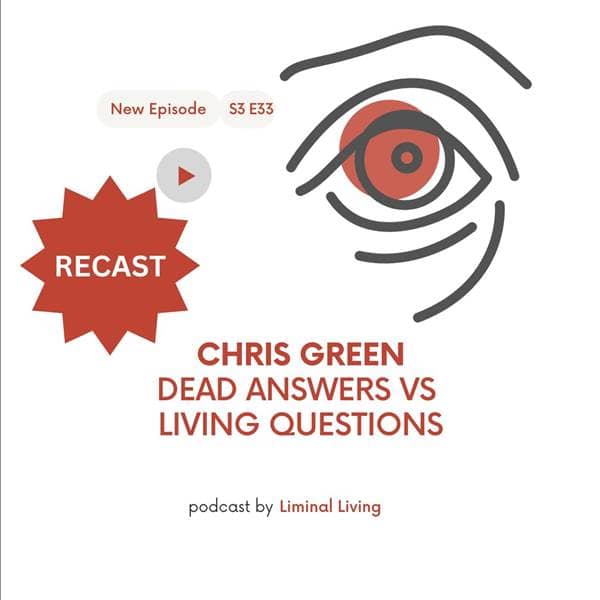
God is many things but, at the top of the list, He is a creator. God cannot answer prayers if there is no one to pray to Him. God cannot love if there is no one for Him to love. And God cannot redeem if there is no one for Him to redeem. Before He does anything for us, God first creates us. And while the sexual union of a man and woman has more than one purpose, it is the closest we can get to imitating God’s act of creation. God has endowed humans with the power, through the procreative act, to partner with Him in creating human life. Thus, at its heart, sex is sacramental. Through it we commune with our spouse; but through it we are also in communion with the divine, sharing His power and fulfilling His will by propagating the existence of humanity.
Because sexual intimacy is central to the continuation of the souls God has created, and central to His ultimate work, it is no surprise that the Bible speaks frequently about human intimacy. What follows are just a few of the dozens of comments and counsel the Bible offers around human sexuality.
While the bulk of what the Bible says about sex focuses on the misuse of the body and sexual relations, there are positive things about sexual relations mentioned in the Bible as well. For example, the Apostle Paul explained: “Husbands and wives should be fair with each other about having sex. A wife belongs to her husband instead of to herself, and a husband belongs to his wife instead of to himself. So don't refuse sex to each other, unless you agree not to have sex for a little while, in order to spend time in prayer. Then Satan won't be able to tempt you because of your lack of self-control.” (CEV 1 Corinthians 7:3-5) In this same epistle, Paul counsels, “because there is so much immorality, every man should have his own wife, and every woman should have her own husband.” (GNT 1 Corinthians 7:2) Paul is telling us that, once married, we have conjugal duties to our partner. Of course, Paul would not support one partner raping another or forcing another to engage in sexual intimacy against his or her will. However, the Apostle reminds believers that part of a healthy marital relationship is meeting the intimate needs of one’s spouse; and one should place the needs of one’s partner before the needs of oneself (according to Paul).
On a related note, the very first commandment God gave to humans (at the beginning of time), was this: “Be fruitful and multiply, and replenish the earth.” (KJV Genesis 1:28) Or, as the New International Reader’s Version renders the verse, “Have children so that there will be many of you. Fill the earth.” Thus, God has not only authorized sex, but He has highlighted one of its important purposes—the perpetuation of the human race. In the biblical text, this is not given as a suggestion, but is actually delivered as a commandment—though most human beings today do not look upon it as such.
In the Book of Proverbs, this important bit of counsel is offered: “Be happy with the wife you married when you were young… You should be attracted to her and stay deeply in love.” (CEV Proverbs 5:18-19) Once the “honeymoon phase” is over, this continued “attraction” will require some measure of effort. We grow comfortable with each other, life grows busy, children come, school and work encroach, and we age. And yet, in essence, the proverb is inviting us to do what it takes to keep the love and romance alive in our marital relationship. If one is to “stay deeply in love,” then one must remain deeply engaged in nurturing that love and devotion to one’s spouse and one’s marriage.
The Bible repeatedly counsels us to control our sexual desires. Even for those who are married, the biblical text doesn’t allow for a sexual “free for all.” Thus, the Apostle Paul wrote, “Don't be controlled by your body.” (CEV Colossians 3:5) In other words, rather than putting our spirit in subjection to our body, we should place our bodies in subjection to our spirits. Paul also wrote, “Don't be a slave of your desires or live like people who don't know God.” (CEV 1 Thessalonians 4:5) Again, the Apostle’s point is that we need to develop control over our sexual appetites. Jesus made an interesting comment on this same subject. He noted, “there are eunuchs who were born that way, and others who were castrated by people, and others who decided to remain unmarried because of the kingdom of heaven.” (EHV Matthew 19:12) In other words, Jesus was saying that some are born with birth defects which make marriage unlikely. Others are castrated in order to serve as guards over wives or harems. And some, for the sake “of the kingdom,” chose to live lives of celibacy—perhaps because they wish to serve as missionaries, priests, or because they don’t have a partner with whom they can appropriately engage sexually. Regardless, the Bible is telling us to exhibit self-control when it comes to our sexual desires.
Culturally speaking, most people don’t think that immoral thoughts are a sin. They may feel it inappropriate to commit adultery, but thinking adulterous thoughts or viewing pornography may not strike them as inappropriate or innately sinful. However, Jesus taught, “every man who looks at a woman lustfully has already committed adultery in his heart.” (CEB Matthew 5:28) Similarly, the Apostle Paul counseled, “Don’t…have evil thoughts.” (CEV Colossians 3:5) The Bible is clearly saying that, in addition to refraining from sexually sinful acts, we should also abstain from inappropriate sexual fantasies or thoughts.
In addition to being provoked by uncontrolled sexual thoughts, so much of sexual immorality starts with sexually immodest behavior. Thus, to the Saints living in Colosse, Paul wrote, “Don't be…indecent.” (CEV Colossians 3:5) Similarly, in Paul’s first epistle to Timothy, he taught, “women should adorn themselves in respectable apparel, with modesty and self-control.” (ESV 1 Timonthy 1:9) While Paul specifically references the modesty of women, both men and women are expected to dress appropriately (according to the Bible). Though we are responsible for our own thoughts and actions, we should not unnecessarily entice others to sin by our dress or behaviors. Thus, speaking of sexual immorality generally, the New Testament advises: “Let us conduct ourselves properly, as people who live in the light of day—no orgies or…immorality or indecency… Stop paying attention to your sinful nature and satisfying its desires.” (GNT Romans 13:13-14) Paul warned us about being naïve about sexual matters, writing to those at Corinth: “Do you not know that the unrighteous will not inherit the kingdom of God? Do not be deceived: neither the sexually immoral, …nor adulterers, nor men who practice homosexuality…will inherit the kingdom of God.” (ESV 1 Corinthians 6:9-10)
According to the Bible, there are many forms of sexual sin. For example, fornication (meaning the sin of sexual relations between unmarried people) is frequently condemned. In the Book of Ecclesiastes we read: “To everything there is a season, …a time to embrace, and a time to refrain from embracing.” (KJV Ecclesiastes 3:1 & 5) Thus, in the Song of Solomon, we are advised: “Young women of Jerusalem, I charge you, do not stir up or awaken love until the appropriate time.” (CSB Song of Solomon 8:4) The counsel in this verse being that one should not be sexually active prior to being married. James likewise states, “we write unto them, that they abstain from…fornication.” (KJV Acts 15:20) The Greek word for “fornication” is porneia, which is the root of our English word “pornography.” While there were no pornographic photographs in the biblical era, our word for “pornography” comes from the Greek word for “fornication” because both suggest sexual relations or desires directed toward someone one is not married to.
Much like fornication, adultery is repeatedly condemned in the Bible. For example, in the Ten Commandments, God (through Moses) instructed us: “You shall not commit adultery.” (ESV Exodus 20:14) The New Testament Book of Hebrews likewise states, “Honor your marriage and its vows, and be pure; for God will surely punish all those who are immoral or commit adultery.” (TLB Hebrews 13:4) Thus, though adultery is less frowned upon today than it once was, the Bible leaves no room for such behavior, indicating it that God “will surely punish” those who participate in such illicit relationships.
In our current culture, any criticism of the LGBTQIA2SMAP+ community is considered “politically incorrect.” However, the Bible is hardly a “politically correct” text. While it says several things about engaging in non-heterosexual sex, two of the most commonly passages dealing with this question are from the Apostle Paul. In the Book of Colossians, we read: “Kill every desire for the wrong kind of sex.” (CEV Colossians 3:5) Likewise, in Romans chapter 1, we are told: “They gave up the truth about God for a lie, and they worshiped God's creation instead of God… God let them follow their own evil desires. Women no longer wanted to have sex in a natural way, and they did things with each other that were not natural. Men behaved in the same way. They stopped wanting to have sex with women and had strong desires for sex with other men. They did shameful things with each other, and what has happened to them is punishment for their foolish deeds.” (CEV Romans 1:25-27) Though the Apostle Paul is not the only biblical author to raise the issue of non-heterosexual erotic relations, one can hardly wonder where Paul stands on the matter.
While it is true that sexual sins often objectify the person with which we have sex, making them the object used by us to fulfill our sexual desires, nonetheless, the New Testament also claims that sexual debauchery is a sin against our selves. Perhaps this explains why the Book of First Corinthians states: “All of you surely know you are God's temple and his Spirit lives in you… God will destroy anyone who destroys his temple.” (CEV 1 Corinthians 3:16-17) In this same epistle, Paul counseled those in Corinth to “run away from sexual sin. It involves the body in a way that no other sin does. So, if you commit sexual sin, you are sinning against your own body.” (ERV 1 Corinthians 6:18)
According to the Holy Bible, sexual sins of any kind do harm; harm to us personally, to the person we engage with, and to the relationships that we should hold most dear. Sexual sins rupture our relationship with God and with others, and they stand in opposition to the ultimate purpose of life—to develop personal holiness. Thus, the Bible reminds us, “God wants you to be holy, so don't be immoral in matters of sex.” (CEV 1 Thessalonians 4:3)
Bible Verses about Human Sexuality
- 1 Corinthians 7:3-5 (CEV): "Husbands and wives should be fair with each other about having sex. A wife belongs to her husband instead of to herself, and a husband belongs to his wife instead of to himself. So don't refuse sex to each other, unless you agree not to have sex for a little while, in order to spend time in prayer. Then Satan won't be able to tempt you because of your lack of self-control."
- Genesis 1:28 (KJV): "Be fruitful and multiply, and replenish the earth."
- Proverbs 5:18-19 (CEV): "Be happy with the wife you married when you were young... You should be attracted to her and stay deeply in love."
- Matthew 5:28 (CEB): "Every man who looks at a woman lustfully has already committed adultery in his heart."
- 1 Corinthians 6:9-10 (ESV): "Do you not know that the unrighteous will not inherit the kingdom of God? Do not be deceived: neither the sexually immoral, nor idolaters, nor adulterers, nor men who practice homosexuality, will inherit the kingdom of God."
- 1 Thessalonians 4:3 (CEV): "God wants you to be holy, so don't be immoral in matters of sex."
3/2/2024 3:56:41 PM
















